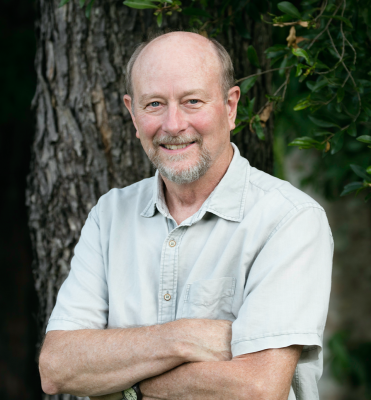By Rod Ritchie, Cara President
The common consensus is that Covid will be around for years to come, so let’s all take a reality check.
Vinay Prasad, MD, associate professor of medicine at the University of California San Francisco, says avoiding Covid for decades is impossible, and adaption to the virus is the next phase of the pandemic. Our personal lives are going to be greatly changed, our workplace culture altered, and our businesses need to plan for the future right now.
Dr Prasad makes three salient points:
– Over the next decade, give or take a few years, every single person on earth has a date with this virus.
– A few of us might get very sick, while many of us may only get mild illness or not get sick at all from our encounter.
– Each of us has to decide how much life we are willing to trade to delay our time to meet the virus.
Change for residents
Since the virus will be a part of our lives for many years, Noosa residents will need to keep their vaccinations up to date, follow Covid safety protocols, and be careful visiting people, events and businesses with a casual attitude towards the virus. Prasad suggests personal responsibility also means keeping yourself informed about the virus from multiple sources rather than just accepting information unquestionably.
We need to plan our personal and work life, and that of our loved ones, to suit the new circumstances and the way we might be happy living. Obviously, for travel purposes, get yourself a vaccine passport as soon as they become available. Primarily, though, take Covid precautions seriously, even if those around you are not, and build personal resilience.
Change for businesses
Noosa Retailers Suffer in Hastings Street was the headline in a recent Courier Mail article. Laura Richardson, the manager of the souvenir shop, I Love Noosa, noted a dramatic drop in customers and sales since lockdown lifted. Obviously, locals and visitors from within the state are not enough to sustain them: “It’s Victoria and New South Wales where we find most of the income … it really is them that bring the money into the street.”, she added. If a souvenir shop is struggling, it’s fair to assume that the upper-end shops are in dire straits. In the same report, Noosa Chamber of Commerce president Ralph Rogers called on the state government to deliver “immediate and direct” financial compensation for Noosa businesses affected by Covid restrictions. Unfortunately, unlimited government assistance is not coming anytime soon, so Noosa retailers need to adapt their product range to cater for a different retail demographic. Now predominantly a drive destination, with interstate and international big-spenders not arriving in anywhere near the numbers they were in the past, retailers will obviously pivot. Streets renowned for expensive merchandise may have to reinvent themselves.
The health sector, services, construction and education have been little affected, and will be less volatile sectors in the new era. The tech sector will boom, not just with visible establishments like the Peregian Hub, but also the huge expansion from home-based businesses, already popular here following the NBN roll out. As more people chose to move here, or even prematurely retire here, the importance of recognising this workforce’s contribution to the economy will need to be properly calculated and reflected in business statistics.
Changes in the tourism industry
In May 2020 I wrote to our local and state government representatives and the new Tourism Noosa chief executive officer. With the Sails cluster fresh in the news and Covid-19 on the ascent, I suggested a new approach to bringing visitors back to Noosa Shire following lockdown. I wrote, “Rebuilding the industry involves competing for the domestic travel market against many other popular destinations. Noosa will need to be branded as more than the relaxation capital of Australia, rather it will need to promote its authentic eco credentials, as it always has, but there must be a marketing emphasis on a standard of health safety based on best-practice Covid precautions in every part of the Shire. We need a Noosa Safe brand that works for both and visitors and residents.” Now might be the time for Tourism Noosa to encourage its members to adopt such an ethos, train for the new health emphasis, and produce marketing collateral which will support the push for a health-safe, eco-friendly Noosa.
High-volume accommodation providers will likely find demand for their product decreases as short-term-accommodation operators like airbnb further disrupt their businesses. Their customers, more savvy nowadays, are booking closer to the travel date and looking for refunds if there are further border closures and local lockdowns. Previously, where they may have relied on travel insurance to cover dramas, policy exclusions mean they will be on their own for travel calamities. And unreliable flight schedules will mean planning far ahead is impossible. With the introduction of vaccine passports, all businesses will need to make sure their establishments have vaccinated staff.
Changes in the events policy
Council eased restrictions to event crowd numbers earlier in the year. Now they should take a precautionary approach with any new guidelines. The push by industry groups for a return to normal represents an existential threat to shire residents. Noosa’s tourism industry is also vulnerable to long-term reputational risk if an outbreak is spread here via visitors slipping through the travel barriers placed on infectious states. Further lockdowns in Queensland would be disastrous for many businesses in Noosa. And, since most Noosa’s events rely heavily on volunteers from the community for a multitude of tasks, both on and off the event site, these people must be given proper protection.
The cliche, we’re all in this together, may not hold. More and more it will be up to individuals to plot their own future. But, if enough people understand the likely scenario of life in the next decade, the common good may still be well served.






